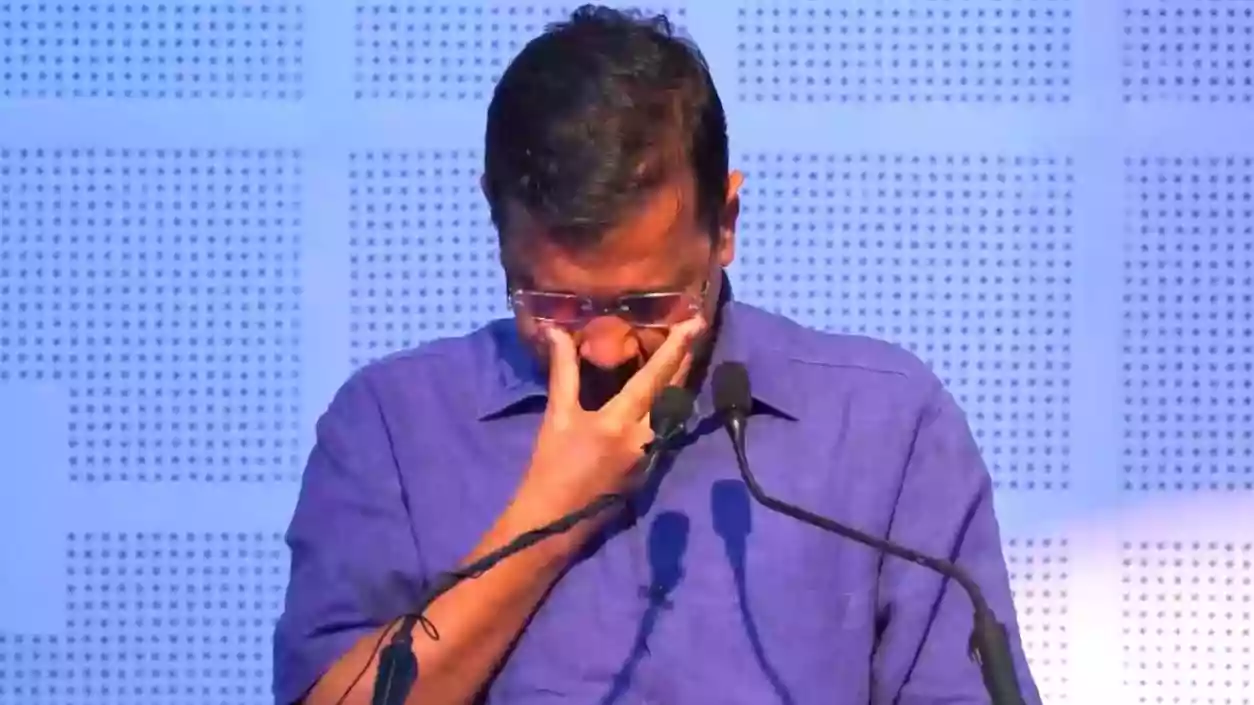Taaza TV Exclusive: Samik Bhattacharya says "BJP won't repeat 2021 mistakes" | Watch
.gif)
.gif)

The Bharatiya Janata Party (BJP) has ended the 27-year-long rule of the Aam Aadmi Party (AAP) in the 2025 Delhi Assembly elections, according to the latest results from the Election Commission. The BJP is set to win around 48 seats in the 70-seat Assembly, while AAP is projected to secure only 22. In a significant upset, BJP's Parvesh Verma defeated AAP national convenor and former Delhi Chief Minister Arvind Kejriwal by 4,089 votes in the New Delhi constituency. This result marks the fall of AAP's dominance, as several senior leaders, including Manish Sisodia and Saurabh Bhardwaj, lost their seats.
AAP's defeat was largely attributed to its failure to fulfill major promises made during its previous campaigns. While the party made strides in improving health and education, major issues like air pollution, lack of clean water, and poor infrastructure remained unresolved. Middle-class residents, in particular, expressed dissatisfaction with the government’s failure to address urban infrastructure problems, including overflowing drains, bad roads, irregular garbage collection, and inconsistent water supply. These unmet expectations played a key role in shaping voter sentiment.
The AAP's credibility was further damaged by the liquor policy controversy. In 2022, the Delhi government introduced a new liquor policy that was later scrapped amid allegations of corruption. The BJP campaigned aggressively, accusing AAP of facilitating kickbacks for liquor vend licenses. Investigations led to the arrest of high-ranking AAP leaders, including Manish Sisodia and Sanjay Singh. In addition, the renovation of Kejriwal's official residence, the "Sheesh Mahal," which was projected to cost Rs 7.91 crore but eventually ballooned to Rs 33.66 crore, stirred public concerns about financial mismanagement, further eroding AAP's anti-corruption image.
Another factor in AAP's downfall was its failure to secure an alliance with Congress in the 2025 elections. Congress ran an independent campaign, attacking AAP's governance and unfulfilled promises. This split the opposition vote, benefiting the BJP. Congress candidates failed to win in 65 constituencies and lost their deposits, but their presence siphoned off votes from AAP, making it difficult for the party to consolidate support. The aggressive campaign against Kejriwal and his party also weakened AAP’s position among anti-BJP voters.
Despite its MCD victory in 2022, AAP struggled to address key issues in urban governance, such as road repairs, waste management, and cleanliness. Public dissatisfaction with the deteriorating conditions of roads, overflowing sewers, and irregular water supply grew over time. The inefficiency of the Municipal Corporation of Delhi under AAP’s control added to the discontent. Voters, particularly in local constituencies, held AAP responsible for the unaddressed civic problems, even though the MCD and Delhi state governance are separate entities.
The steady departure of senior AAP leaders further weakened the party. Figures such as Prashant Bhushan, Yogendra Yadav, and Kumar Vishwas left due to disagreements with Kejriwal's leadership and the party's increasing centralization of power. The resignation of Kailash Gahlot in 2024 added to the perception of internal instability. These defections created a sense of disunity and contributed to the public’s growing frustration with the party's internal struggles.
Finally, BJP’s campaign strategy proved highly effective. While the party did not focus primarily on Hindutva, it targeted AAP’s corruption issues and emphasized practical matters such as air pollution, traffic, public safety, and the promotion of central government schemes. BJP’s outreach to specific communities, including Purvanchalis, slum dwellers, and its aggressive digital campaign, also played a key role in expanding its base. The BJP was able to leverage its strong voter base from the previous Lok Sabha elections, where it had performed well in Delhi, ultimately securing its long-awaited victory.